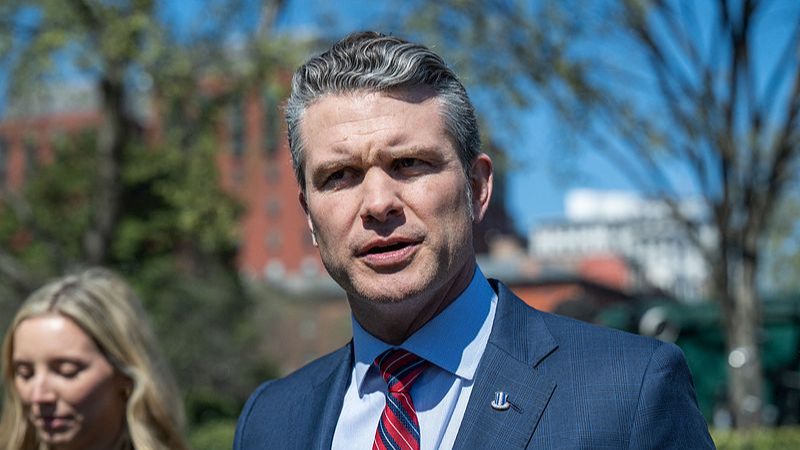
Jeffrey Goldberg, editor-in-chief of The Atlantic, said on Monday that senior U.S. national security officials recently added him to a Signal group chat discussing a military strike on Houthi forces in Yemen. He said he became aware of the air strike plan about two hours before the U.S. operation.
The senior officials' handling of the highly sensitive information has sparked widespread criticism, with Democratic lawmakers and legal experts expressing concerns over the breach of security protocols and the potential legal ramifications.
The backstory
Goldberg detailed the incident in an article on the magazine's website on Monday. He explained that on March 11, he received a connection request on the Signal messaging app from a user named Michael Waltz – the name of the U.S. national security advisor. However, at the time, it was unclear whether this was the official's actual account.
Two days later, Goldberg received a notification that he would be added to a group chat called "Houthi PC Small Group."
A message to the group, from "Michael Waltz," read as follows, "Team – establishing a principles [sic] group for coordination on Houthis, particularly for over the next 72 hours," Goldberg wrote.
The term "principals committee" generally refers to a group of the senior-most national security officials, including the secretaries of defense, state and the treasury, as well as the director of the Central Intelligence Agency (CIA), he explained.
Goldberg said he had serious doubts about the authenticity of the group chat because he couldn't believe that the U.S. national security leadership would discuss imminent war plans on Signal.
He also couldn't believe that the president's national security advisor would be so reckless as to include the editor-in-chief of The Atlantic in such discussions with senior U.S. officials, including Vice President JD Vance.
However, as the conversation progressed, he began to sense a high degree of verisimilitude.
"What I will say, in order to illustrate the shocking recklessness of this Signal conversation, is that the Hegseth post contained operational details of forthcoming strikes on Yemen, including information about targets, weapons the U.S. would be deploying, and attack sequencing," Goldberg said, referring to Defense Secretary Pete Hegseth.
After the actual air strikes happened at the same time as previewed in the group chat, Goldberg reached out to several U.S. officials in the group chat to verify whether this was a genuine Signal thread, and to inquire about why he was added to the chat, among other related questions.
"This appears to be an authentic message chain, and we are reviewing how an inadvertent number was added to the chain," Brian Hughes, the spokesman for the National Security Council, replied.
What did Trump, officials say?
Later that day, U.S. President Donald Trump was asked about the incident during a media briefing at the White House, to which he responded that he was unaware of it.
"I don't know anything about it. You're telling me about it for the first time," Trump said, adding that The Atlantic was "not much of a magazine."
The president later seemed to make light of the breach, sharing a post from Elon Musk on social media platform X that linked to a satirical article with the headline "4D Chess: Genius Trump Leaks War Plans to 'The Atlantic,' Where They'll Go Unnoticed."
White House press secretary Karoline Leavitt said in a statement, "President Trump continues to have the utmost confidence in his national security team, including National Security Advisor Mike Waltz."
When asked by media about this, Hegseth said, "Nobody was texting war plans. And that's all I have to say about that." The defense secretary also lashed out at Goldberg, calling him "a deceitful and highly discredited so-called 'journalist' who's made a profession of peddling hoaxes time and time again."